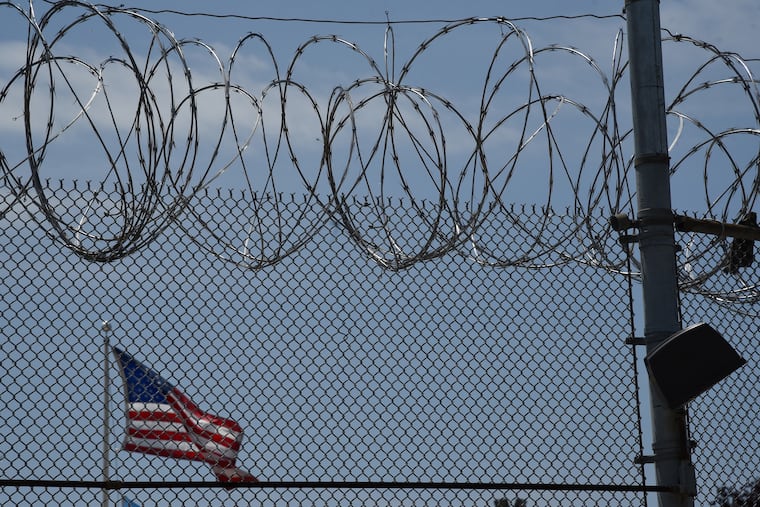The Philadelphia Prison Advisory Board is a farce
The past year of turmoil has shown that Philadelphia’s prisons need independent oversight and a board with the power to act.

The Philadelphia Department of Prisons runs our local county jails and theoretically should benefit from advice, guidance, and oversight from its Prison Advisory Board. In reality, the Philadelphia Prison Advisory Board provides neither advice nor oversight. It is a farce. I should know. I was on it for the last six years.
The past year of turmoil has shown that Philadelphia’s prisons need independent oversight and a board with the power to act. The Prison Advisory Board provides neither. So I have resigned.
Our prison system is in a true health and safety crisis. There have been at least 29 deaths in our prisons since the pandemic began. A lieutenant recently filed a whistle-blower complaint, reporting that inmates were breaching their cells, causing what she called “major disturbances.” Corrections officers took to the streets in protest last August to draw attention to what they called dangerous conditions, and there was another mass disturbance at the Philadelphia Industrial Correctional Center in October. The Pennsylvania Prison Society has repeatedly called out the situation as a crisis, most recently last month, and all of this resulted in multiple federal lawsuits.
Each of these issues is cause for alarm. Taken together, they point to a system at its breaking point. Until the ratio of corrections officers to people incarcerated is brought into better balance, the people who are incarcerated in and work at our prisons remain at risk.
Behind this crisis sits the Prison Advisory Board: a group of seven people who have no authority to act and no ability to address these problems. Since my time on the board, I’ve seen it meet once every three months or so with the prison commissioner and her top deputies, usually with no advance agenda, and almost always without public access to the meetings.
The board does not meet with people who are incarcerated or their families. It does not meet with corrections officers independently from the prison administration. It does not seek input from community groups who interact with the prison. It does not offer advice. Any attempt at independence is hampered by a board chair who only advances the position of the prison administration, and frequently ignores efforts by other members of the board to communicate or to work collaboratively.
Even if the board did offer advice, the prison commissioner could choose to ignore it. There is no document to provide clear guidance as to the board’s role or authority. Without that, and without leadership on the board willing to take action, the Prison Advisory Board appears to exist only to say that an advisory board exists and to endorse the prison administration’s choices by its existence. Particularly in this time of crisis, our prisons need more.
» READ MORE: In prison, a phone was my lifeline. Until I got caught with it. | Opinion
Philadelphia deserves independent civilian oversight of the prisons. To be effective, a civilian oversight board needs a document laying out its obligations and authority. It should hold meetings that are accessible to the public and should make written recommendations on a consistent schedule that are publicly available. It should have the authority to request whatever information necessary from the prison system to inform its work. It should have the power to take actions that the prison administration must heed.
To be independent, its members should be free from conflicts or contractual relationships with the Department of Prisons. Its members should include informed stakeholders like the Pennsylvania Prison Society, the Institutional Law Project, and representatives from the corrections officers union. It should include community members and community groups involved in criminal justice reform. It should seek input outside the prison administration.
To be informed, the board should meet with corrections officers, inmates, families of the incarcerated, and community groups whose work intersects with the prison system. Its members should regularly tour the prisons and should be able to tour the prisons at any time, without being monitored by the prison administration.
With a system at its breaking point, the people incarcerated in and working at our prisons deserve better. They need more. The prisons need independent, informed, and effective civilian oversight. What they have instead is window dressing, complicit in the crisis through its inability to act.
Sara Jacobson is an attorney and the executive director of the Public Defender Association of Pennsylvania. Until May 31, she was also a member of the Philadelphia Prison Advisory Board, appointed by Mayor Jim Kenney in 2016.